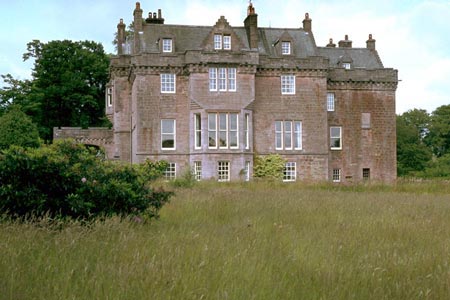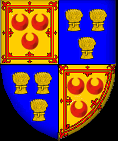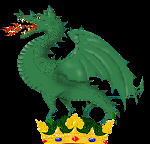| |


Sorn is a Celtic word, meaning a promontory, or rising-ground of frowning
aspect. Sorn Castle undoubtedly received its name from its situation, as it
stands high on a precipitous rock overhanging the water of Ayr. Almost sheer
down from its massive walls, forty or fifty feet below their foundations, the
clear stream dashes and tumbles over its rocky bed. At the time when the castle
was built a site was eligible only as it showed advantages for purposes of defence. In such days the situation must have seemed an ideal one. From the side
facing the river, the castle was almost impregnable, and the undulating country
which stretched beyond could easily be overlooked from the castle walls. In
front, the bare, treeless expanse of those days would offer no hiding place from
watchful sentries. Such a stormy, troublous epoch has, happily, long since
passed away, and the castle has again and again been adapted to meet the wants
of the times, but in all its changes it has ever been the effort of its
restorers to conserve its strictly Scottish style of architecture. In that they
have been successful, and it is now a stately pile, with turreted windows, or
low, broad casements, the crest of the Somervell family carved in high relief
beside the entrance hall, the new part and the old blending into each other
without the slightest incongruity. Its situation, chosen at first undoubtedly
for defence, is now considered admirable because of its beauty. At an elbow-like
turn in the river, near the kirk of Sorn, the bank on one side rises from almost
canal-like flatness to steep bluffs and perpendicular scars of rock. And high on
its rocky promontory above the clear, impetuous stream, where its waters are
caught and deepened and silenced in a long, slanting weir, stands this castle of Sorn. Of reddish stone, with windows set far back, like eyes deep-sunk with age,
it is outlined through intervening trees or seen above their swaying branches.
James VI visited Sorn Castle on the occasion of the marriage of Isobel Hamilton, the
daughter of his Lord Treasurer, with George Lord Seton. Isobel Hamilton, heiress of Sorn, married
the seventh Lord Seton, and her son, eighth Lord Seton, became a great favourite
of James VI and was created by him first Earl of Winton, by a charter dated 16th Nov 1600.
His only daughter, Isobel, married James, first Earl of Perth. The chair which His Majesty is said to have used on the
occasion was kept in Sorn Castle till the sale of the estate in 1782, when it
was transferred to Loudoun Castle, where it still remains. It is a large chair
of oak, of curious workmanship, with the arms of Sir William Hamilton carved
upon the back. Yet the marriage of the first Isobel was a very important one
also, and Sir Richard Maitland in his "Historie of the House of Setoune," says
that "the union was devised to bring about an alliance betwixt the Setounes and
the Governor Arran, to whose house Sir William belonged, and was of such
political importance that a medal commemorating it was struck, bearing the
initials of the bride and bridegroom, I. H. and G. S., and the motto, "ung loy,
ung foy, ung roy," is of great historical interest, as an example of ancient phonetic spelling of French!
The story of the King as he travelled to Sorn is: the journey was
undertaken in the winter, and in those old days travelling was
quite a different matter from what it is now. The King was heartily tired of his
ride over moor and moss and clay, and said "if he could play the Devil a trick
he would send him from Glasgow to Sorn in the depths of winter." A well about
half-way from Glasgow, from which His Majesty drank, is called the King's Well
to this day. The horse upon which the King rode came to grief
near the well. It sank in the bog, and His Majesty was rescued with some little
difficulty. The King made a joke of it, and said that his horse was stabled, and
even now, or until a few years ago, the spot was known as the King's Stable.
| |
 |
 |
A History of Sorn
Castle

A Tour of Sorn
Castle

An old photo of Sorn
Castle

Views of Sorn
Castle
Entrance of Sorn Castle
Interior Photos
Gate House
Front View
Rear View
|
